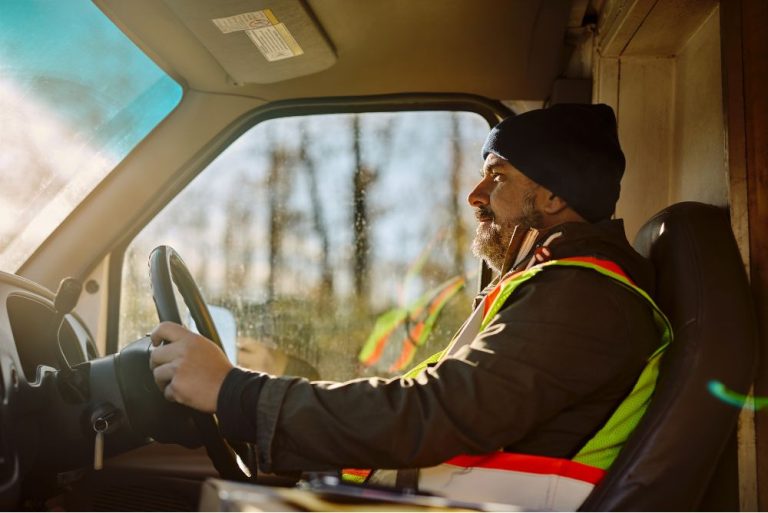For tradespeople, the cost of driving makes a huge impact. Whether you’re a plumber, electrician, carpenter, or any other skilled professional, your van is your lifeline, carrying you, your tools and materials from job to job. However, the landscape of driving costs has been rapidly changing, presenting a challenge for many tradespeople.
This time, we’re taking a close look at the issues causing the “cost-of-driving crisis”, from the skyrocketing prices of vans to penalties in Ultra Low Emission Zones (ULEZ), increasing insurance rates, and of course the never-ending rise in fuel prices. Let’s explore what’s fuelling these higher costs, as well as how you can get more for your money.
The soaring price of vans
One of the greatest expenses for any tradesperson is buying a reliable work van. However, the cost of purchasing a van has been going up and up recently due to a few things:
- Global supply chain issues: The COVID-19 pandemic disrupted supply chains around the world, leading to global shortages of key car manufacturing components like microchips. Van manufacturers, like many other manufacturers, faced production delays, leading to reduced supplies of new vans.
- Increased demand: The pandemic also sparked a surge in demand for vans, as more people turned to trades and delivery services. This increased demand, combined with the supply chain issues, further raised van prices.
- Emission regulations: As governments around the world opt for stricter emission regulations (like the UK’s ULEZ), manufacturers are required to develop more eco-friendly vehicles. While this is a positive development for the environment, it often translates to higher production costs, which are passed on to you, the customer!
- Additional features: Vans now come equipped with advanced technology, safety features, and other amenities, driving up their cost. While these features can be beneficial, they do add to the number written on the price tag!
To make it easier for those of you who use vans for work, it will be more important than ever to plan your money carefully when buying a van. This means setting aside money for it, looking into other ways to pay for it like finance options, and thinking about how much you can save in the long run by getting a van that uses less fuel and needs less fixing.
Ultra Low Emission Zone (ULEZ) penalties
To help make the air cleaner, many cities have introduced Ultra Low Emission Zones (ULEZ), where only vehicles meeting strict emission standards can enter without incurring penalties. While this is a positive step for the environment, it can come at a price for tradespeople with older vehicles. Here are some important factors to think about when it comes to ULEZ penalties:
- Increased operating costs: If you work in ULEZ areas and your vehicle isn’t up to the emissions standards, then you will have to pay £12.50 a day! That adds up fast and will quickly eat into your business’ profit margin.
- Mandatory vehicle upgrades: You may need to invest in upgrading their vans to meet ULEZ requirements, which can have a hefty price tag.
- Watch out for new zones: ULEZ areas are expanding, and it’s not always easy to know where they are. Invest in GPS systems or use apps that alert you to ULEZ areas to avoid penalties.
- Consider alternative fuel options: Some tradies are looking into vans that run on electricity or are hybrids. These vans can cost more at first, but they save you money in the long run on fuel and maintenance, while also helping the environment.
Fuel prices: a never-ending challenge
Fuel is the lifeblood of any tradesperson’s business. Unfortunately, fuel prices have been consistently rising, creating an ongoing challenge for those who rely on their vans for work. Here are some strategies that might help you manage this cost:
- Pick fuel-efficient vehicles: When you get a new van, look for ones that go easy on their fuel consumption to save you money.
- Plan your journeys: Plan your route as efficiently as possible to prevent any unnecessary mileage. Use GPS apps to help you find the quickest way.
- Driver training: Teach your drivers fuel-efficient driving techniques, such as smooth acceleration, changing gears earlier and avoiding sharp braking.
- Consider alternative fuels: Look into whether or not you are able to use alternative fuels like compressed natural gas (CNG) or liquefied petroleum gas (LPG). They might well be cheaper and better for the planet.
- Take care of your van (and your van will take care of you): Make sure your van is healthy. Even the smallest thing like making sure your tyres have the right pressure levels cave save your fuel.
- Use an app: A fuel tracker app when you’re travelling around, to compare fuel costs by postcode. Just remember not to undermine any saving you might have on petrol by travelling miles and miles to get a cheaper rate!
How can I lower the cost of my insurance premiums?
One of the unavoidable costs that comes with owning a vehicle is your insurance premium. And lately, premiums have been at record highs. But what’s driving these rises?
Unfortunately, insurance premiums across the board have been on the rise due to several factors:
- Increased vehicle costs: As we set out earlier, the price of vans has soared, and insurance premiums are often calculated based on the vehicle’s value. The higher the value of vans the higher the price of insurance premiums!
- Claims and accidents: Insurance companies adjust premiums based on the frequency and severity of claims in a specific area. If you work in areas with a high incidence of accidents or claims, you may face higher insurance costs.
- Policy changes: Insurance companies regularly update their policies and pricing structures. It’s essential to regularly review your policy to make sure that the information is all correct.
So, what can you do to deal with these changes?
Consider your vehicle security, Installing security measures such as alarms, immobilisers, and dashcams can help reduce insurance premiums by decreasing the risk of theft or vandalism.
Try to keep a clean driving record to keep your insurance costs from going up. Avoid accidents and fines, so that you have a clean licence and make sure you are using all of the extra security measures possible to lower the likelihood of theft.
When it comes time to renew, purchasing your car insurance three weeks out enables us to obtain the best rates for you. So, don’t leave it until the last minute!
Another way to look at your insurance is asking yourself ‘what I am getting for my money?‘ If the worst happened, would your insurer be proactive, and go the extra mile, sorting a back-up transport solution for you, before you’d even filed a claim?
It’s not just the big gestures that count, it’s the smaller things too. Like having a branch in the heart of your local community to be on hand, whether in person on over the phone, ready to take care of it all for you.
It sounds like it’s about us, but it’s all about you – you get better value of service, and that is something we at Howden pride ourselves on. To speak with one of our team about your insurance, or any other queries, find your local branch here.
Sources: BBC News, Evening Standard, Car Dealer Magazine, Construction Wave, Consumer Intelligence, RAC.


